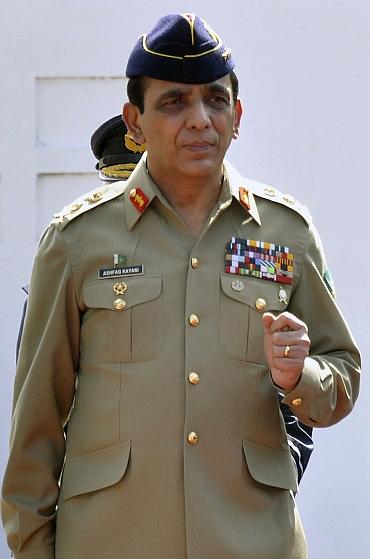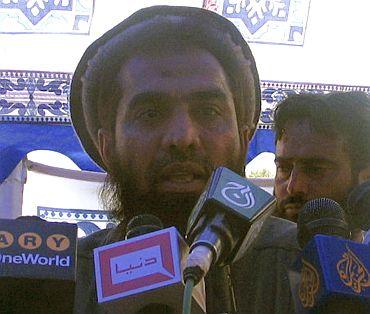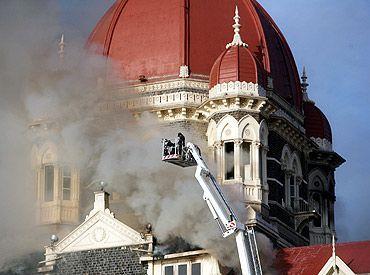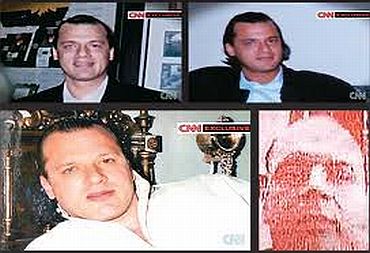
Pakistan Army Chief General Ashfaq Pervez Kayani refused an American request to confiscate the cell phone of jailed Lashkar-e-Tayiba commander Zaki-ur-Rehman Lakhvi being used to direct group's operation from the Rawalpindi jail, reflecting connection between the country's military and the terrorist outfit.
"Kayani rejected a United States request that authorities take away the cell phone Lakhvi was using in jail, according to the memo to Secretary of State Hillary Clinton and the National Security Council," said the investigative news report which was telecast by PBS's Frontline and posted on the website of ProPublica on Wednesday.
...

As a result of this Lakhvi continues to direct LeT operations unhindered from the safe confines of a jail in Rawalpindi. According to the PBS ProPublica joint investigation, during a meeting overseas last summer, a senior US official and Kayani, the chief of Pakistan's armed forces, discussed a threat that has strained the troubled US-Pakistani relationship since the 2008 Mumbai attacks blamed on the militant group.
The senior US official expressed concern that Lakhvi, a terrorist chief arrested for the brutal attacks in India, was still directing Lashkar operations while in custody, according to a US government memo viewed by ProPublica.

Kayani responded that Pakistan's spy agency, the Inter-Services Intelligence Directorate, had told prison authorities to better control Lakhvi's access to the outside world, the memo said.
The Kayani-US officials meeting, the memo said, was emblematic of the lack of progress three years after Lashkar and the ISI allegedly teamed up to kill 166 people in Mumbai.
"The US government filed unprecedented charges against an ISI officer in the deaths of six Americans. Yet, Pakistani authorities have not arrested him or other accused masterminds. The failure to crack down on the jailed Lakhvi, whose trial has stalled, raises fears of new attacks on India and the West, it quoted the counter-terror officials as saying.

"Lakhvi is still the military chief of Lashkar," a US counter-terror official is quoted as saying. "He is in custody but has not been replaced. And he still has access and ability to be the military chief. Don't assume a Western view of what custody is," the official said.
Sebastian Rotella -- the investigative reporter for PBS Frontline and ProPublica -- wrote that in the United States, stubborn questions persist about the case's star witness David Coleman Headley, a confessed Lashkar operative and ISI spy.
"The Pakistani-American's testimony at a trial in Chicago this year revealed the ISI's role in the Mumbai attacks and a plot against Denmark. It was the strongest public evidence to date of ISI complicity in terrorism," Rotella wrote.